
Dental implants are tooth replacements. They are inserted into the jaw and their purpose is to replace a missing toot or teeth. Dental implant procedure is a type of prosthetic dentistry and it can be also considered a cosmetic dentistry.
By replacing missing teeth (to be more precise missing roots) a patient is given a chance to restore all the lost teeth and regain appealing appearance of the teeth. Furthermore, the procedure provides with the increase in teeth effectiveness (chewing is better) and prevents deterioration of the jaw bone.
It is essential to seriously investigate the treatment, its benefits and potential side effects. Choosing a well experienced surgeon is important as well.
Consultations and Treatment Planning
Before a patient undergoes dental implant procedure he/ she must be thoroughly examined by a dentist, an oral surgeon and/ or periodontist. The health of the teeth and gum is essential for the success of the procedure. The person undergoes X-ray or CT scan. They give perfect insight in bone structures that are going to be treated and in which implants are going to be inserted. After the examination the dentist suggests the most convenient dental implant treatment plan.
Dental Implant Procedure
The very procedure includes preparing the jaw for implantation and placement of the implant. During the preparation for dental implants the surgeon drills a small-diameter hole at edentulous jaw sites. The hold guides a titanium screw that normally holds a dental implant in its place. A surgeon must be very skilled and well experienced since this part of the procedure carries a risk of damaging some vital jaw and face structures such as the inferior alveolar nerve in the lower jaw. What follows in slowly widening of the hole so that it can allow for placement of the implant screw. The final step is securing of the surrounding gum tissue over the implant. A protective cover screw is put on the top. Its purpose is to allow the healing of the operated site and osseointergration.
After maximum 6 months the dentist will uncover the implant and attach an abutment. In some patients an abutment is attached during the initial stage of the procedure. And finally, temporary crown is placed on the abutment. It allows the gum to grow and shape in a natural way. These temporary crowns are eventually replaced with permanent crowns and this is the actual ending of the procedure.
Dental Implant Surgery- Aftercare
Recovery time after dental implant surgery depends on many factors. All patients must maintain impeccable oral hygiene in order to ensure proper fusion of the dental implant and the jaw. Implant failure is most commonly associated with failure to brush and floss teeth on regular bases. One more contributor to a dental implant failure is smoking.



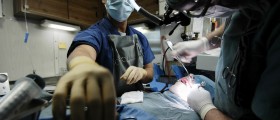
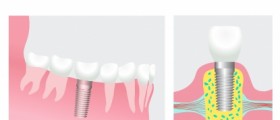

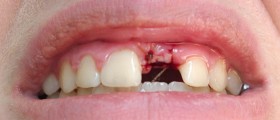
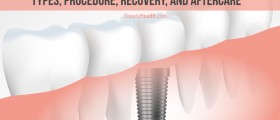

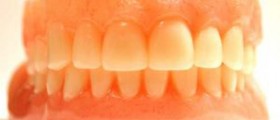

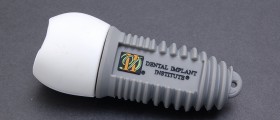
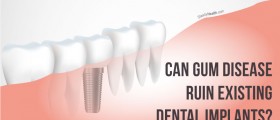




Your thoughts on this
Loading...